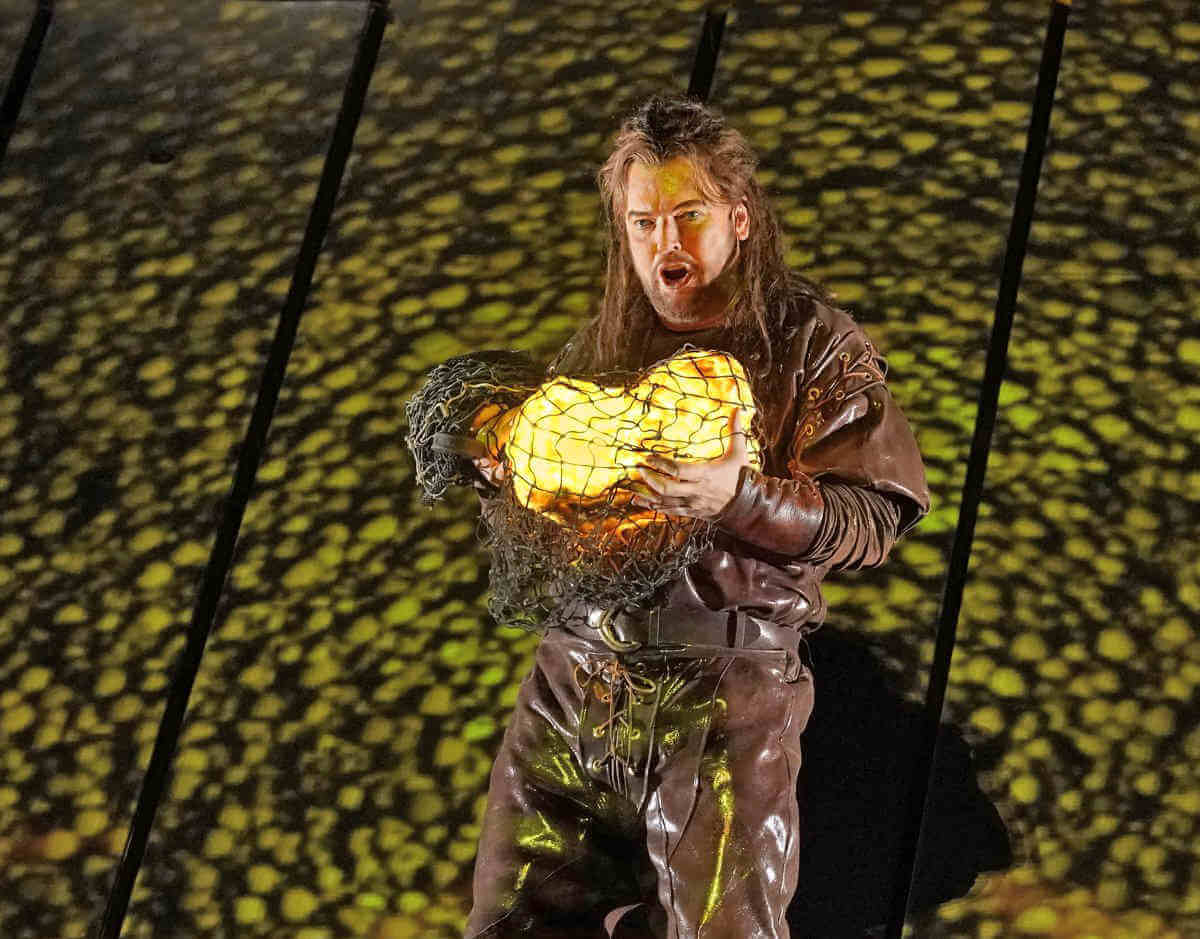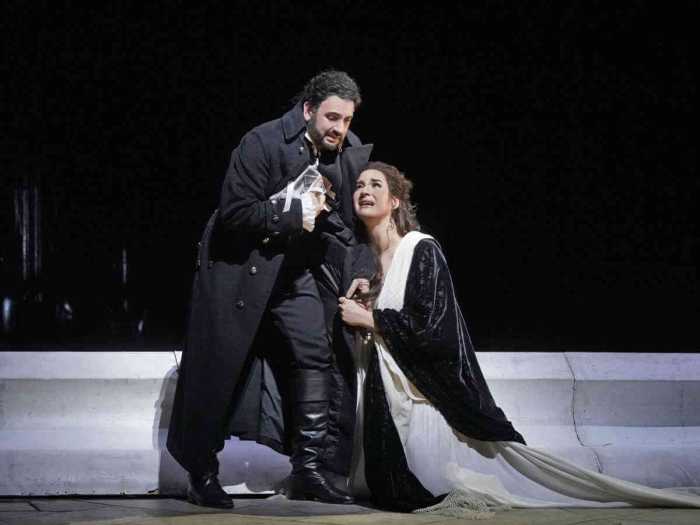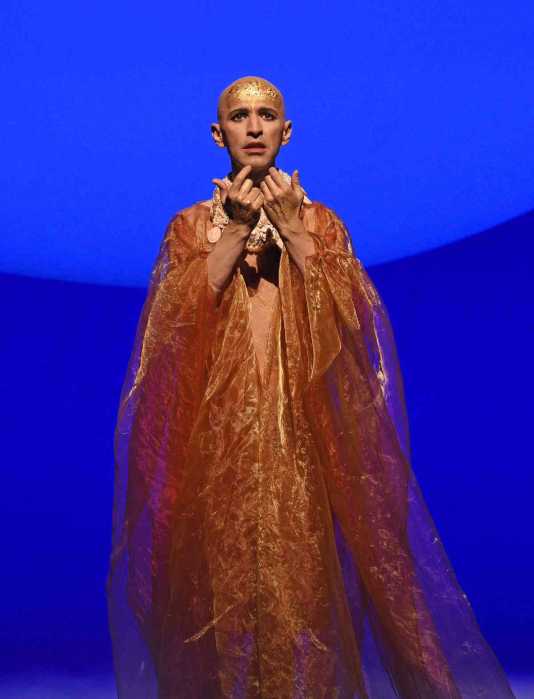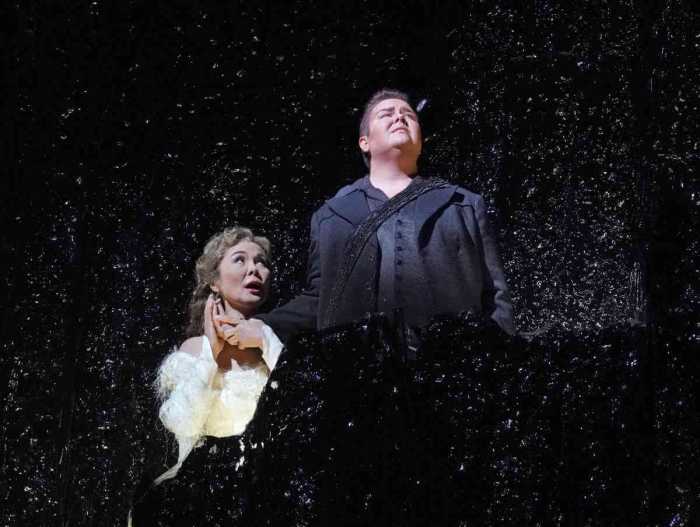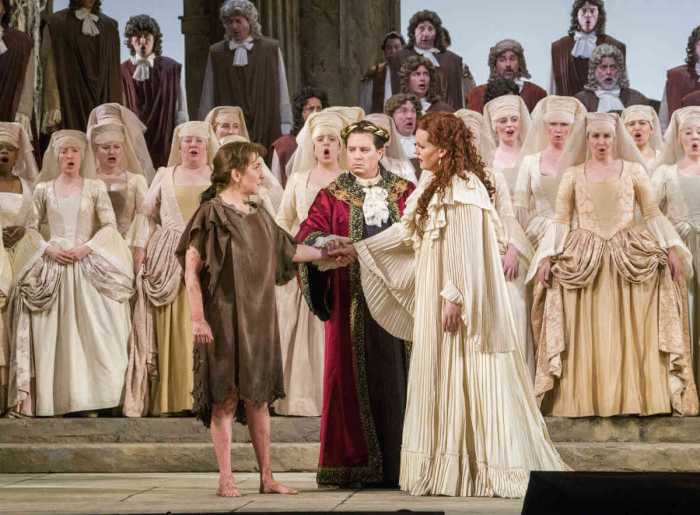The Metropolitan Opera is bringing the Robert Lepage “Ring” production back for three cycles this spring. This revival features a new cast of Wagnerian stars led by Christine Goerke as Brünnhilde. he press spin is that the Lepage production has been freshened up and redesigned. Things did not, however, begin all that promisingly at the second performance of “Das Rheingold” on March 14t
During the prelude, the shimmering chords representing the waves of the Rhine competed with the creaking and banging of the grinding steel slats of “the Machine.” The horn section of the Met Orchestra added a few ill-tuned noises of their own. The three Rhinemaidens were attached by wire cables to the Machine. When it was upside down, they were suspended in the air looking like they were swimming underwater. However, when the Machine swung over into a flat upright position, the three mermaid-like figures were stranded like beached dolphins, pretty much immobilized by their costumes and rigging. Instead of the three water nymphs eluding Alberich’s lecherous pursuits, he had to run or fall down the sloping stage away from them. The playing spaces on the Machine are limited and awkward.
Much of Lepage’s staging is concert style with the singers lined up in front of the machine or awkwardly perched on it. The magical transformation effects are workaday — several were handled with more flair in the old Schenk/ Schneider-Siemssen production. Then there is the fact that the machine designed by Carl Fillion is a visually utilitarian and unpoetic set of moving metal slats with computer video projected onto it. Computer video is something in the 21st century that we stare at all day on our smart phones, television, billboards, and computer screens at home and in the office. We’ve seen it before and done better.
Though production-wise things are not improved, the Met presented a musically distinguished group of performers. One strong singer followed another, and after a while the problematic production didn’t matter all that much. Maestro Philippe Jordan conducted a lyrical, forward-moving conception of Wagner’s score that bodes well for the rest of the Cycle. The Met Orchestra mostly played very well for him — the horn section settled down by the final scenes.
The cast contained two excellent debuts and a raft of well-loved Met regulars in house role debuts. Greer Grimsley returned to sing an authoritative Wotan with a rather craggy but imposing bass-baritone. As his wife Fricka, Jamie Barton’s tone was lush and expansive. Barton showed us that Fricka is forced into the role of the bad cop in her marriage rather than just being a shrew. (Wagner makes us sympathize with Wotan, who makes monumentally bad and immoral decisions. Meanwhile, Fricka is always right about everything yet we have no sympathy for her at all.) Baritone Tomasz Konieczny, in his Met debut, made a vocally deluxe Alberich with a tone and presence that commanded the stage — I’d like to hear him in a more heroic leading role like Jokanaan or the Dutchman. The other debutant, tenor Norbert Ernst, unfurled a bright, supple, and insinuating lyric tenor as Loge. Sashaying around the stage in a gold jumpsuit and space boots with a wild curly red wig, Ernst’s characterization of the mercurial trickster god had a decidedly gay vibe about it. The witty camp persona colored Loge’s role as a controversial outsider among the gods. Neither debutant possesses a character singer instrument and both brought great style to their characterizations.
Karen Cargill’s Erda was sung with a warm, rich, and even mezzo tone that didn’t quite descend into true contralto eeriness. The giants were nicely contrasted with Günther Groissböck’s smoother warmer bass as the lovelorn Fasolt, while Dmitry Belosselskiy sounded darker and rougher as the greedy Fafner. Wendy Bryn Harmer unleashed a brightly thrusting soprano tone as Freia, making her character sound less passive and put upon than usual. As the Rhinemaidens, Amanda Woodbury, Samantha Hankey, and Tamara Mumford vocalized splendidly in their solo lines and blended perfectly in trio. Adam Diegel brought bright heroic tenor tones to Froh, but the very able lyric baritone Michael Todd Simpson was a little short of decibels in Donner’s anvil swinging invocation.
As a preview of things to come, this “Rheingold” promises great musical enjoyment in the three upcoming operas. The Met Orchestra is sounding very good if not quite at the level of Ring Cycles past led by the now disgraced James Levine. The Lepage production is what it is and reveals clearly the limitations as much as the potential of technology. You need vision and a concept, and that is lacking here. Robert Lepage is a man of great imagination and should know that technology is not a replacement for artistic vision.

